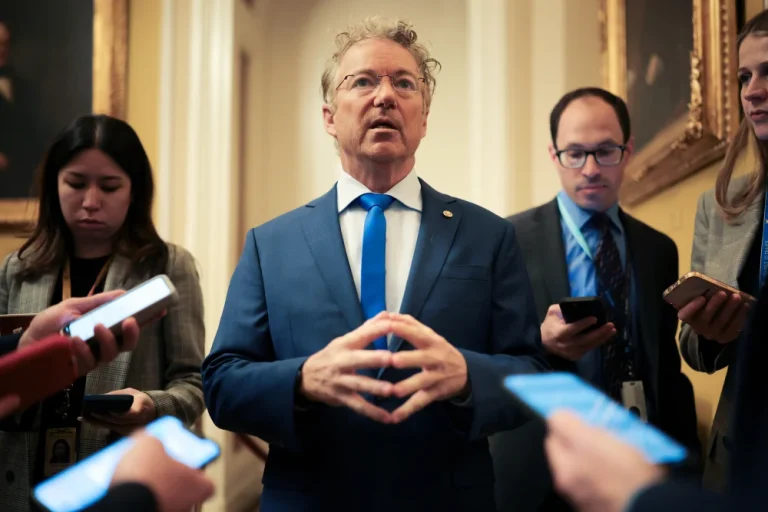WASHINGTON — On Wednesday, the Senate is set to vote on a resolution aimed at undoing the extensive tariffs imposed by President Donald Trump on numerous countries earlier this month.
Senators Ron Wyden, D-Ore., and Rand Paul, R-Ky., used a legislative maneuver to bring the measure to a vote, which seeks to revoke the national emergency Trump declared to enforce the global tariffs. The resolution only needs a simple majority to pass in the Senate, where Republicans currently hold a 53-47 majority.
If the resolution clears the Senate, it’s unlikely to progress in the GOP-controlled House, where Republicans recently passed a measure creating additional hurdles for lawmakers aiming to expedite votes on resolutions related to Trump’s tariff powers. Additionally, the White House indicated on Tuesday that Trump would veto the resolution if it reached his desk.
Earlier this month, the Senate voted 51-48 in favor of a similar, more limited resolution that would have blocked U.S. tariffs on Canada. Four Republicans joined Democrats in supporting it: Senators Mitch McConnell and Paul of Kentucky, Susan Collins of Maine, and Lisa Murkowski of Alaska.
Senate Majority Leader John Thune, R-S.D., and Paul anticipate that the same Republicans who supported the previous resolution will likely back this new one as well.
“They had the votes last time, so we’ll see,” Thune said. “My expectation is, it could be similar in terms of kind of what the vote count is on that.”
Paul expressed his belief that there is “growing discontent” with Trump’s tariff policies. On the day most tariffs went into effect, Trump unexpectedly announced a 90-day pause on raising tariffs for many countries, allowing time for negotiations. At the same time, Trump increased tariffs on China to 145%.
The vote on the resolution coincides with a report from the Commerce Department revealing that the U.S. economy contracted by 0.3% in the first quarter of the year, a development the White House tried to downplay. In response, Trump urged the public to “BE PATIENT!!!” in a post on Truth Social.
Trump administration officials have repeatedly claimed that negotiations for trade deals with countries facing higher U.S. tariffs are making progress. However, they have yet to provide details or clarify when agreements might be reached.
On Tuesday, U.S. Trade Representative Jamieson Greer told Senate Republicans on Capitol Hill that several countries are eager to negotiate trade deals and that he remains “optimistic” about finalizing multiple agreements in the coming weeks. Greer also mentioned that many countries are now open to removing significant non-tariff trade barriers, according to Senators who attended the meeting.
Senator Josh Hawley, R-Mo., shared that Greer had highlighted this positive shift: “He said a lot of countries are now willing to take off their non-tariff trade barriers, which are pretty significant.”
Meanwhile, Senate GOP Whip John Barrasso, R-Wyo., criticized those pushing for the vote on the resolution, arguing that it’s a waste of time.
“They know it’s not going to go anywhere, they know it’s not going to become law,” Barrasso told NBC News on Tuesday. “All they’re trying to do is slow down the process, preventing us from getting more members of the president’s leadership team confirmed and in place.”
In addition to the resolution, Senators Chuck Grassley, R-Iowa, and Maria Cantwell, R-Wash., introduced a bill that wouldn’t immediately halt Trump’s tariffs but would allow them to expire after 60 days unless Congress voted to approve them.
Paul suggested that the Grassley bill offered a symbolic way for some lawmakers to oppose the tariffs without taking direct action to stop them. “I think the only thing that keeps us from growing bigger is that sort of the Grassley bill is an off-ramp for people who want to symbolically oppose the tariffs but don’t want to, in reality, stop them,” Paul said.
Senator Thom Tillis, R-N.C., facing a tough re-election in the coming year, said he’s collaborating with Grassley on his legislation but wouldn’t support the resolution from Paul and Wyden.
“It’s a political exercise,” Tillis said. “It has no hope in the House, and I don’t do messaging bills.”

